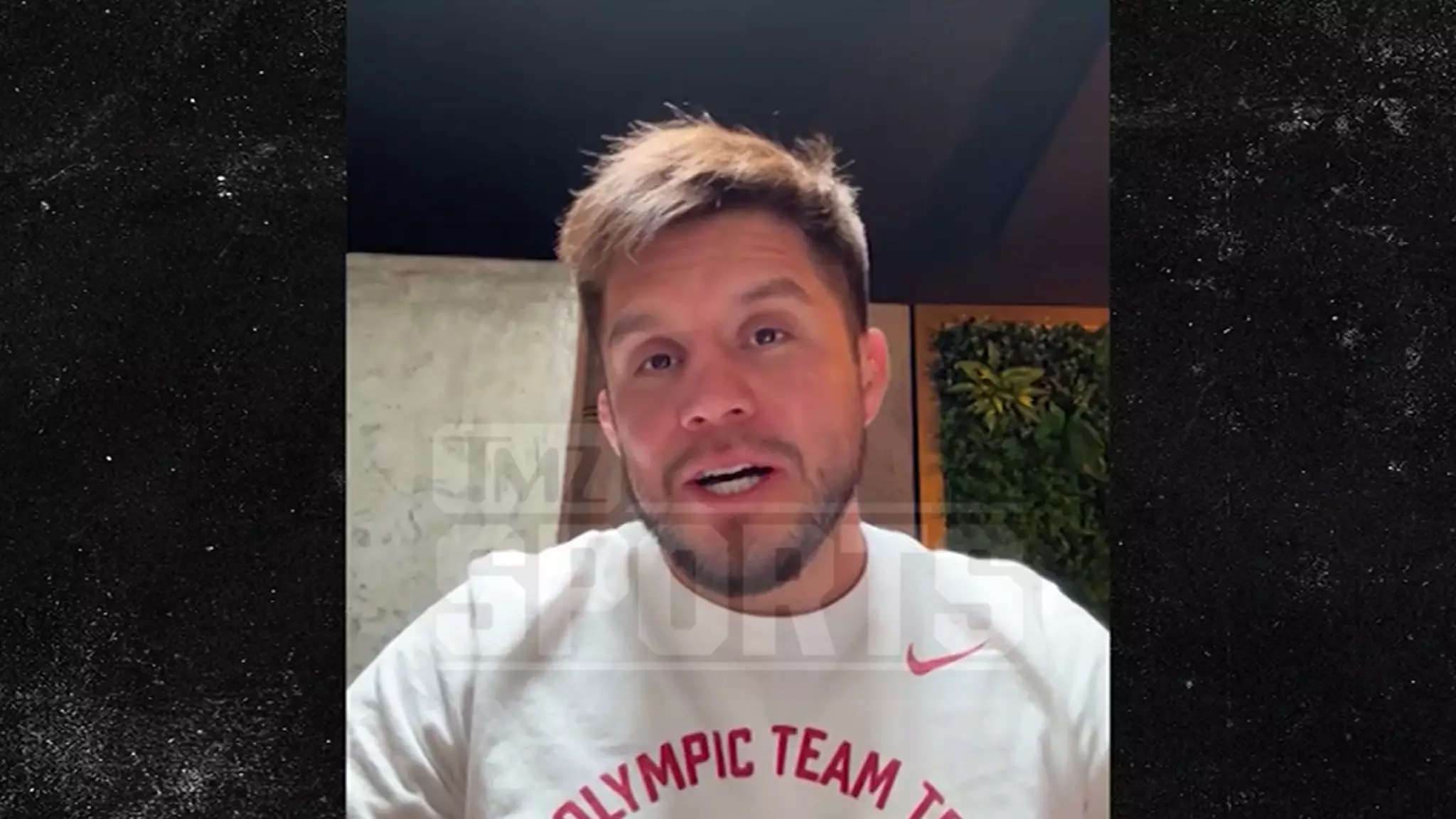Last week, in a flare of adrenaline and instinct, former UFC champion Henry Cejudo found himself in the midst of chaos that unfolded right in his Phoenix neighborhood. Witnessing a high-speed hit-and-run incident, Cejudo did not hesitate to step in, believing that his involvement may have been crucial in saving the suspect from the wrath of angry neighbors. His quick thinking and decisive actions bring to light a complex mix of heroism, responsibility, and the consequences of reckless behavior on our streets.
The events unfolded dramatically as Cejudo watched a group of young adults drive at breakneck speeds down his street, clocking in at approximately 80 MPH. When their vehicle launched into the air after striking a sprinkler system, the destruction escalated: the car crashed through a neighbor’s house, compounding the danger of the situation. Cejudo was faced with a choice — to intervene or allow the situation to escalate further. His internal conflict is palpable; he chose to act, embracing the role of protector amidst the chaos.
A Tense Confrontation
Cejudo’s decision to step in became all the more significant when one of the individuals from the vehicle assaulted a neighbor who had confronted them. His instinct kicked in, and he physically restrained the assailant—a bold move that could have backfired had the individuals been armed or desperate. Indeed, the stakes were high; Cejudo reported that two of his neighbors were reportedly ready to use their firearms against the suspect. The balance between violence and restraint was razor-thin in that moment of turmoil.
With the situation escalating to the point where one neighbor cocked a gun and threatened the suspect, Cejudo’s intervention arguably redirected the trajectory of the incident. By restraining the assailant, he may have not only protected the perpetrator from immediate harm but also spared his neighbors from making a potentially grievous decision that could lead to irreversible consequences. This act of intervention positioned him as an unlikely intermediary, showing a fascinating side of human instinct when faced with crisis.
The Implications of Recklessness
In the aftermath of the incident, Cejudo reflected on the broader implications of dangerous behavior in society—a sentiment echoed by many who often find themselves questioning the recklessness of youth, especially concerning driving under the influence. Cejudo stated his hope that the young suspect, later identified as 22-year-old Angel Cota, learns a valuable lesson, suggesting that sometimes the most vital education comes from experiencing the consequences of one’s actions. His feeling that the young man deserves to “do time” highlights a belief in accountability, yet raises questions about the effectiveness of punitive measures and rehabilitation.
It’s a precarious dance—the need for community protection versus the desire for understanding and change. Cejudo stands at the intersection of this dilemma, embodying both the anger of those wronged and the empathy for a misguided youth whose poor choices could have led to tragedy. His reflections provoke an essential discourse: How do we as a society ensure that consequences are met with compassion, creating opportunities for growth rather than just punitive measures?
Cejudo’s involvement in this reckless incident sheds light not only on the instinct of heroism but also on the complex nature of human interactions in crises. In his role, we see the potential for community solidarity but also the dangers of unchecked actions. The narrative invites deeper reflection on responsibility, a sense of moral duty, and the lessons learned from reckless decisions, forging a pathway for dialogue on safety, accountability, and second chances.

